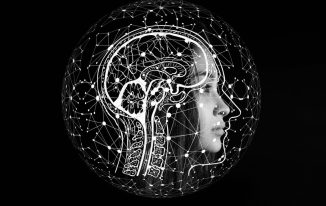The job search process has evolved dramatically in recent years, with artificial intelligence (AI) playing an increasingly prominent role in creating personalized experiences for job seekers. From AI-powered resume builders to job-matching algorithms, AI is transforming how individuals find and apply for jobs. This article explores the key factors that impact the role of AI in creating personalized job search experiences, the tradeoffs involved in different approaches, and the challenges that come with leveraging AI technology in this context.

Understanding AI’s Role in Job Searches
AI’s integration into the job search process is designed to make it more efficient, tailored, and user-friendly. AI technologies analyze vast amounts of data to deliver customized job recommendations, optimize resumes, and enhance the overall job search experience. Let’s delve deeper into some of the most prominent applications of AI in this area.
1. AI Resume Builders
AI resume builders have become a popular tool for job seekers looking to create professional, optimized resumes quickly. These tools use natural language processing (NLP) to analyze job descriptions and match relevant keywords, ensuring the resume aligns with what employers are seeking. They can also suggest improvements in formatting, structure, and content to increase the chances of getting noticed by automated Applicant Tracking Systems (ATS).
- Pros: AI resume builders can save time and improve the quality of resumes, increasing the likelihood of being shortlisted by employers. They provide personalized suggestions based on the job seeker’s skills, experience, and the specific job market.
- Cons: Over-reliance on AI tools may result in generic resumes that lack a unique personal touch. Additionally, not all AI resume builders offer accurate or contextually appropriate advice, potentially leading to resumes that do not fully represent a candidate’s qualifications.
2. Job Matching Algorithms
AI-powered job matching algorithms analyze a job seeker’s profile, including their resume, skills, experience, and preferences, to recommend suitable job opportunities. These algorithms consider a wide range of factors, such as location, salary expectations, job type, and industry trends, to create a tailored list of job openings.
- Pros: Job matching algorithms can significantly reduce the time and effort required for job seekers to find relevant positions. By providing personalized recommendations, they help candidates discover opportunities that match their skills and career goals.
- Cons: These algorithms may not always capture the nuances of a candidate’s experience or preferences, leading to irrelevant or unsuitable job recommendations. There is also a risk of algorithmic bias, where certain job seekers may be disadvantaged due to flaws in the algorithm’s design or data inputs.
3. Chatbots and Virtual Career Assistants
AI-driven chatbots and virtual career assistants are increasingly used to guide the job search process. They can answer questions, provide job search tips, schedule interviews, and even offer feedback on resumes or cover letters.
- Pros: Chatbots provide immediate assistance and can handle repetitive queries, making the job search process more efficient and less stressful for candidates. They offer personalized support and are available 24/7.
- Cons: While useful, chatbots may lack the ability to provide deep, nuanced insights or understand complex, context-specific inquiries. Users might also find interactions with AI less satisfying or trustful than those with human career advisors.
Key Factors Impacting the Role of AI in Personalized Job Searches
1. Data Quality and Privacy Concerns
AI tools rely heavily on data to provide personalized job search experiences. The quality of the recommendations or advice offered by AI is directly tied to the data it processes. Inaccurate or incomplete data can lead to poor job matches or suboptimal resume suggestions.
- Tradeoffs: The more data AI systems have, the better they can personalize the job search experience. However, this raises privacy concerns for users who may be reluctant to share sensitive personal information. Striking a balance between data collection and privacy is critical for AI developers and job platforms.
2. Algorithm Transparency and Bias
AI algorithms are only as unbiased as the data they are trained on. If the data reflects societal biases, such as gender or racial discrimination, these biases can be perpetuated or even amplified by AI systems. Ensuring transparency in how AI algorithms operate and are trained is essential to avoid unintended biases.
- Tradeoffs: Developing fair and transparent AI systems may require significant time and resources, potentially slowing innovation. However, failing to address bias can lead to ethical issues, legal challenges, and a loss of users’ trust.
3. User Experience and Trust
For AI-driven job search tools to be effective, job seekers must trust and be willing to use them. User experience plays a significant role in building this trust. If the AI recommendations or resume suggestions seem irrelevant or out of touch, users may abandon these tools altogether.
- Tradeoffs: Building sophisticated AI models that provide accurate, personalized advice can enhance trust and user engagement. However, creating such systems can be expensive and require substantial development efforts.
Challenges in Using AI for Personalized Job Search Experiences
1. Balancing Personalization with Privacy
One of the biggest challenges in using AI for job searches is balancing personalization with privacy. While AI can offer highly personalized job search experiences, achieving this often requires access to extensive personal data. Companies must navigate complex data protection laws and maintain robust cybersecurity measures to protect user information.
2. Overcoming Algorithmic Bias
Algorithmic bias remains a significant hurdle. To mitigate this, AI developers need to use diverse datasets and continually test their models for bias. This requires ongoing effort and a commitment to ethical AI practices, which may not always align with business interests focused on speed and cost efficiency.
3. Ensuring Accessibility and Inclusivity
AI-driven tools need to be accessible to all job seekers, including those with limited digital skills or access to technology. Ensuring inclusivity means designing user-friendly interfaces, providing language support, and considering the needs of people with disabilities.
Conclusion: The Importance of Thoughtful Implementation
AI has the potential to revolutionize the job search process by making it more personalized, efficient, and user-centric. However, realizing this potential requires careful consideration of several factors, including data privacy, algorithm transparency, user experience, and the risks of bias.
Job seekers and employers alike must be aware of the capabilities and limitations of AI-driven tools. By understanding the tradeoffs involved and the challenges these technologies face, stakeholders can make more informed decisions about how to best leverage AI in creating personalized job search experiences. Thoughtful implementation of AI technologies can lead to a fairer, more efficient job market that benefits both job seekers and employers.
Ultimately, the role of AI in job searches will continue to evolve. As technology advances, it will be crucial to prioritize ethical considerations and user needs to ensure that AI serves as a beneficial tool for all.



